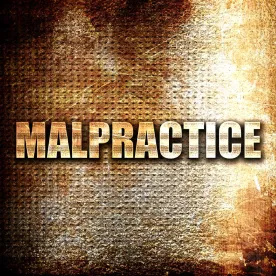Most states view the duty to defend more broadly than the duty to indemnify. Some people call the duty to defend “litigation insurance” because it often applies even where the allegations are slim, conclusory and ultimately untrue. A recent Fifth Circuit case reemphasizes how many courts address the duty to defend.
In Allied World Specialty Insurance Co. v. McCathern, P.L.L.C., No. 17-10615 (5th Cir. Feb. 26, 2020) (Not Precedent), a lawyers’ professional liability insurer brought a declaratory judgment action against a law firm seeking to avoid both the duty to defend and indemnify the law firm from an underlying legal malpractice case. The malpractice case arose after the lawyer allegedly was late in accepting a Stowers demand for the remaining policy limits of the underlying insured’s policy. In the underlying case, the court rejected the law firm’s arguments that the demand had been accepted, dismissed the affirmative defense of settlement, and a jury found against the underlying insured for an amount well over the policy limit.
A legal malpractice case was brought (actually two), with the allegations brought by the underlying insured going beyond the failure to timely accept the Stowers demand and including the law firm’s failure to monitor the file, failure to work the file, failure to timely communicate and failure to properly research all issues of fact and law. The malpractice complaint included the allegation that “[a]ll of these acts of negligence, among others, taken together and separately, proximately caused” the excess judgment.
The professional liability insurer defended under a reservation of rights and then brought this declaratory judgment action. The insurer contended that it did not have to defend or indemnify because of a Prior Knowledge Condition in the policy, which precluded coverage for wrongful acts that occurred before the policy’s inception date that the insured should have been aware could result in potential liability. The law firm moved to dismiss the case and the district court granted the law firm’s motion on the duty to defend, holding that a ruling on the duty to indemnify would be premature. Partial judgment was entered and the professional liability carrier appealed.
The Fifth Circuit affirmed, holding that the insurance company had failed to show that none of the allegations in the underlying actions were potentially covered by the policy or that the underlying pleadings only alleged facts excluded by the policy. The court concluded that some of the alleged wrongful acts occurred during the policy period, which required the insurance company to defend the law firm.
While it was not clear from the vague pleadings when some of the alleged wrongful acts occurred, some of the alleged wrongful acts, held the court, seemingly would apply throughout the underlying personal injury suit. Holding that the pleadings should be liberally construed in favor of the duty to defend even if the timing of these acts were indeterminable, the court affirmed the partial judgment.
The court found that the insurance company’s challenge to the non-Stowers allegations was based on specificity and truthfulness. The court stated that “at the duty-to-defend stage it is not for us to say whether [the underlying insured] will be able to prove that [the law firm] was negligent in failing to monitor the personal injury suit or in failing to research legal issues.” The court noted that under Texas law, even vague allegations may give rise to a duty to defend. The court also noted that Texas law has long applied a tiebreaker in the case of doubt as to whether the allegations compel the insurer to defend. That tiebreaker, unsurprisingly, is in favor of the insured, not the insurance company.
Based on these principles, the court affirmed the judgment on the duty to defend because the district court correctly concluded that at least some of the malpractice allegations potentially implicated the professional liability policy.




 />i
/>i

